How to Develop Foundational Math Skills for Career Success
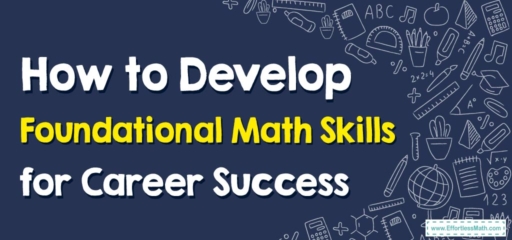
Developing strong foundational math skills is crucial for career success in today’s rapidly evolving world. This article explores what foundational math skills entail, their importance, and provides guidance on assessing current math skills, setting clear goals, seeking additional resources, and utilizing effective study techniques. The article also emphasizes the practical application of math skills in real-life scenarios and offers techniques to strengthen mental math abilities.
Defining Foundational Math Skills
Foundational math skills refer to the fundamental knowledge and abilities required to understand and apply mathematical concepts effectively. These skills form the basis for more advanced mathematical learning and are crucial for success in various academic and professional pursuits. Let’s explore what foundational math skills entail and why they are essential:
- Numerical Operations: Foundational math skills encompass a solid understanding of numerical operations, including addition, subtraction, multiplication, and division. Proficiency in these operations lays the groundwork for solving complex mathematical problems.
- Fraction, Decimal, and Percentage Understanding: A strong grasp of fractions, decimals, and percentages is integral to foundational math skills. Proficiency in working with these forms of numbers enables individuals to handle real-life situations involving measurements, ratios, and proportions.
- Algebraic Concepts: Foundational math skills involve familiarity with algebraic concepts such as equations, variables, and functions. Proficiency in algebra provides the tools to solve equations, analyze patterns, and express relationships between variables.
- Geometry and Spatial Reasoning: Understanding geometric principles and spatial relationships is another aspect of foundational math skills. Proficiency in geometry helps individuals visualize and analyze shapes, sizes, angles, and distances.
- Data Analysis and Statistics: Foundational math skills include the ability to interpret and analyze data, as well as apply statistical concepts. Proficiency in data analysis and statistics enables individuals to make informed decisions based on quantitative information.
The Importance of Foundational Math Skills
Developing strong foundational math skills is of paramount importance in today’s rapidly evolving world. Here are some key reasons why these skills hold tremendous value:
- Gateway to Success: Foundational math skills act as a gateway to various academic and professional opportunities. They provide the necessary foundation for pursuing careers in STEM fields, finance, data analysis, and other math-intensive disciplines.
- Critical Thinking and Problem-Solving: Proficiency in math fosters critical thinking abilities, enabling individuals to approach problems analytically and devise logical solutions. It enhances problem-solving skills, promotes logical reasoning, and encourages systematic thinking.
- Career Advancement: Studies have consistently shown a strong correlation between math skills and career advancement. According to the U.S. Bureau of Labor Statistics, occupations that require advanced math skills tend to offer higher salaries and better growth prospects.
- Versatility: Foundational math skills have broad applications across industries. From analyzing financial data to designing algorithms, from conducting scientific experiments to predicting market trends, math plays a crucial role in diverse professional settings.
- Data Literacy: In our modern, data-driven society, having a solid grasp of foundational math skills is crucial. These skills empower individuals to comprehend and analyze numerical information, enabling them to make informed choices and extract valuable insights.
- Adaptability to Technological Advancements: As technology continues to advance, proficiency in math becomes even more crucial. Emerging fields such as artificial intelligence, machine learning, and data science rely heavily on mathematical foundations, making math skills a valuable asset in the job market.
A study published in the Journal of Educational Psychology revealed a strong link between a solid math foundation and improved scores in both math and reading comprehension. The research, conducted with a large sample size, demonstrated that students with strong math skills not only excelled in problem-solving but also showed enhanced reading abilities. These findings highlight the important cognitive benefits of developing math proficiency, including improved critical thinking and logical reasoning skills. This research has significant implications for educators and policymakers, emphasizing the need to prioritize comprehensive math instruction to foster well-rounded individuals prepared for success in today’s world.
Assessing Your Current Math Skills
Before you embark on the journey of developing and strengthening your foundational math skills, it is essential to assess your current level of mathematical proficiency. By evaluating your abilities, you can identify areas of strength and pinpoint specific areas that require improvement.
Begin by reflecting on your past experiences with math and gauge your overall confidence in the subject. Consider how you have performed in previous math courses or any mathematical tasks you have encountered in your academic or professional life.
Familiarize yourself with the math curriculum standards or syllabus that aligns with your current educational level or desired career path. This will give you a clear understanding of the concepts and skills you should ideally be proficient in.
To gauge your understanding of different mathematical concepts, solve a variety of sample math problems or take online assessments designed to evaluate math skills. These resources can provide insights into your strengths and weaknesses, helping you focus on areas that need improvement.
It can also be beneficial to seek feedback from a math teacher, tutor, or mentor who can assess your abilities and provide guidance. Their expertise can help you identify specific areas for improvement and suggest appropriate resources or study materials.
Remember, assessing your current math skills is not meant to discourage you, but rather to provide a starting point for growth. With a clear understanding of your strengths and weaknesses, you can create a targeted plan to enhance your foundational math skills and build a solid mathematical foundation for future success.
Setting Clear Goals
Setting clear goals is a vital step in achieving success in any endeavor, including developing foundational math skills. By defining specific objectives, you provide yourself with direction and motivation, helping you stay focused and track your progress. Here are some guidelines for setting clear goals:
- Be Specific: Clearly define what you want to accomplish in terms of math skills. For example, your goal could be to master multiplication tables or improve problem-solving abilities.
- Set Measurable Targets: Create goals that can be quantified or measured. For instance, you could aim to solve a certain number of math problems correctly within a specified time frame.
- Make Goals Attainable: Ensure that your goals are realistic and achievable. Set challenging targets, but also consider your current skill level and available resources.
- Relevance Matters: Align your goals with your broader academic or career aspirations. This connection will enhance your motivation and sense of purpose.
- Create a Timeline: Begin by establishing a timeline or deadline for accomplishing each of your goals. By breaking down larger objectives into smaller milestones, you can maintain motivation and make steady progress.
- Monitor Your Progress: Consistently track your advancement toward your goals. This enables you to identify areas where you might need to make adjustments or seek additional assistance.
Keep in mind that goal setting is an ongoing process. As you make headway, you may find it necessary to revise or establish new goals to continually challenge yourself. Regularly reassess your goals to ensure they remain relevant and inspiring as you continue to enhance your foundational math skills.
Seeking Additional Resources
In your journey to develop foundational math skills, seeking additional resources can provide valuable support and enhance your learning experience. Explore math apps like Khan Academy, Photomath, or Mathway, which offer interactive lessons, practice exercises, and step-by-step solutions.
Online platforms such as Coursera and edX provide a wide range of math courses designed to cater to different skill levels and learning objectives.
Mathematics-focused websites like MathisFun and Math Playground offer engaging activities, games, and puzzles that can reinforce key math concepts in an enjoyable way.
Textbooks and workbooks are valuable resources for self-study and practice in math. Look for reputable publishers like McGraw-Hill, Pearson, Oxford University Press, and Effortless Math. They offer comprehensive math materials aligned with educational standards, ensuring clarity, accuracy, and effective learning. Effortless Math is a trusted provider of high-quality resources, including textbooks and workbooks. Combined with materials from renowned publishers, students can enhance their math skills and achieve success.
Publications such as “Mathematics Teacher” and “Teaching Children Mathematics” are scholarly journals that provide insights into effective teaching strategies, innovative approaches, and research-based practices for math education.
Lastly, don’t underestimate the power of connecting with math communities and forums. Platforms like Math Stack Exchange and Reddit’s r/learnmath allow you to ask questions, seek guidance, and engage in discussions with fellow learners and math enthusiasts.
By incorporating these additional resources into your learning journey, you can access diverse perspectives, interactive materials, and expert insights, ultimately enhancing your foundational math skills. Remember to adapt your resource choices based on your individual learning style and preferences to optimize your progress.
Effective Study Techniques
Utilizing effective study techniques is crucial for maximizing your learning potential and developing solid foundational math skills. Research has shown that employing specific strategies can significantly enhance retention and understanding of mathematical concepts. Consider implementing the following techniques:
According to a study published in the Psychology of Addictive Behaviors, regular practice is key to improving math skills. Students who dedicated at least 30 minutes per day to math practice demonstrated significant gains in their mathematical abilities.
Setting aside dedicated study time and creating a consistent study routine helps build discipline and focus. Allocate regular time slots for math practice to establish a habit and make the most of your study sessions.
Breaking down complex math problems into smaller, manageable steps allows for easier comprehension and problem-solving. This strategy, known as chunking, helps to reduce cognitive load and facilitates deeper understanding of mathematical concepts.
Utilize a variety of resources such as textbooks, online tutorials, practice worksheets, and interactive tools to reinforce your learning. Research has shown that diverse learning materials and approaches contribute to better understanding and retention of math skills.
Engaging in active learning methods, such as solving practice problems, working on real-life math applications, and teaching concepts to others, promotes active engagement and enhances comprehension and retention.
Collaborating with peers through group study sessions or joining math study groups can foster a supportive learning environment, facilitate discussion, and provide opportunities for sharing different problem-solving approaches.
By incorporating these effective study techniques into your learning routine, you can optimize your efforts and accelerate your progress in developing foundational math skills. Remember that consistency, active engagement, and utilizing a variety of resources are key to achieving long-lasting mastery.
Applying Foundational Math Skills in Real-Life Scenarios
Foundational math skills play a crucial role in our everyday lives, extending beyond the classroom or workplace. These skills are essential for navigating various real-life situations and making informed decisions. Let’s explore some examples of how foundational math skills are applied in practical contexts:
- Budgeting and Personal Finance: Understanding math concepts such as addition, subtraction, percentages, and interest rates enables individuals to create and manage budgets effectively. Whether it’s calculating monthly expenses, determining savings goals, or comparing prices to find the best deals, math skills are essential for making sound financial decisions.
- Cooking and Baking: In the kitchen, math skills are put to work when following recipes, adjusting ingredient quantities, and converting measurements. Being able to calculate ingredient proportions, scale recipes up or down, and understand cooking times and temperatures contribute to successful culinary endeavors.
- Home Improvement and DIY Projects: From measuring and estimating materials needed for renovations to calculating dimensions for furniture placement, foundational math skills are invaluable when working on home improvement projects. Understanding concepts like area, volume, and angles helps ensure accurate measurements and successful project outcomes.
- Travel and Navigation: When planning trips or navigating unfamiliar places, math skills come into play. Calculating distances, converting between units of measurement (e.g., miles to kilometers), and budgeting travel expenses all rely on foundational math skills. Additionally, understanding concepts like time zones and calculating travel times contribute to efficient travel planning.
- Data Analysis and Interpretation: In our data-driven world, being able to interpret and analyze numerical information is essential. Foundational math skills help in understanding statistics, interpreting graphs and charts, and making informed decisions based on data. Whether it’s analyzing market trends, evaluating research findings, or interpreting financial reports, math skills are vital for data literacy.
These examples demonstrate how foundational math skills are applied in practical, everyday scenarios. By having a solid grasp of mathematical concepts, individuals can navigate various aspects of life with confidence and make well-informed decisions in diverse contexts.
Strengthening Mental Math
Developing strong mental math skills is essential for performing quick and accurate calculations without relying on external aids. By practicing mental math regularly, you can enhance your computational abilities and improve your overall mathematical fluency. Here are some effective techniques to strengthen your mental math skills along with accompanying exercises:
Practice Daily: Dedicate a few minutes each day to practicing mental math exercises. Start with simple calculations and gradually increase the complexity as you progress. Regular practice trains your brain to perform calculations more efficiently.
Exercise: Calculate the following mentally:
a) 32 + 17
b) 98 – 43
c) 6 x 9
d) 75 ÷ 5
Break Down Numbers: When faced with larger numbers, break them down into smaller, more manageable parts. This technique simplifies calculations and makes them easier to solve mentally.
Exercise: Multiply the following mentally:
a) 25 x 6
b) 48 x 7
c) 13 x 9
Utilize Number Patterns: Recognize and utilize number patterns to simplify mental calculations. Understanding and applying such patterns can significantly speed up your mental math processes.
Exercise: Use number patterns to find the missing numbers:
a) 2, 4, 6, __, 10
b) 5, 10, 15, __, 25
Estimation Skills: Develop the ability to estimate quantities and approximate results. Estimation helps you quickly assess the reasonableness of answers and make informed decisions.
Exercise: Estimate the following:
a) The sum of 345 and 221
b) The product of 18 and 27
Real-Life Applications: Look for opportunities in your daily life to apply mental math skills. Calculate the tip at a restaurant, mentally determine the change you should receive, or estimate the time it takes to complete a task.
Exercise: Estimate the total cost of the items in your grocery cart before reaching the checkout counter.
Expanding Beyond the Basics
While foundational math skills provide a solid framework, it’s important to expand your knowledge beyond the basics to develop a more comprehensive understanding of mathematics. Here are some ways to explore and expand your math skills:
- Advanced Topics: Dive into more advanced mathematical topics that align with your interests or career aspirations. Explore subjects such as algebra, geometry, trigonometry, calculus, or statistics. These areas of study provide deeper insights into mathematical concepts and their applications in various fields.
- Problem-Solving Challenges: Engage in challenging problem-solving exercises that require critical thinking and creativity. Solve puzzles, tackle math competitions, or participate in mathematical problem-solving communities. These activities push you to think outside the box and develop innovative problem-solving strategies.
- Technology and Mathematics: Embrace technology as a tool to enhance your math skills. Utilize graphing calculators, math software, or online resources to visualize concepts, perform complex calculations, and explore mathematical simulations. Technology can deepen your understanding and open up new avenues for exploration.
- Real-World Applications: Seek opportunities to apply your math skills to real-world situations. Look for connections between mathematics and other disciplines like physics, engineering, economics, or computer science. By understanding how math is applied in various contexts, you gain a more practical and holistic perspective.
- Mathematical Literature: Explore mathematical literature, textbooks, and research papers to expand your knowledge. Read about the history of mathematics, famous mathematicians, or contemporary mathematical breakthroughs. These resources expose you to different mathematical perspectives and foster a deeper appreciation for the subject.
By venturing beyond the basics, you unlock new dimensions of mathematics and nurture a curiosity that fuels continuous learning and exploration. Embrace the challenge of delving deeper into the subject, and let your passion for math lead you towards exciting and rewarding discoveries.
Final Words
Strong foundational math skills are essential for career success in various fields. By understanding the importance of these skills and following effective strategies for improvement, individuals can enhance their math proficiency and unlock numerous opportunities. Whether it’s through setting clear goals, seeking additional resources, or applying math skills in practical contexts, developing a solid mathematical foundation is key to achieving long-term success.
Related to This Article
More math articles
- What is the Median of a Triangle?
- Top Math Websites for Online Classes
- 8th Grade MEAP Math Practice Test Questions
- Top 10 Tips to Create a TABE Math Study Plan
- 8th Grade North Carolina End-of-Grade Math Worksheets: FREE & Printable
- Unlocking Trigonometric Secrets: A Comprehensive Guide to Double-Angle and Half-Angle Formulas
- 8th Grade MEAP Math FREE Sample Practice Questions
- Top 10 HiSET Math Practice Questions
- Ultimate Guide to Proving Angles Congruent: Techniques and Tips
- 7th Grade STAAR Math FREE Sample Practice Questions
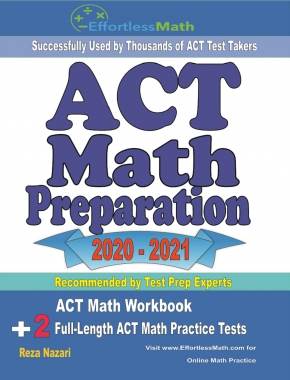
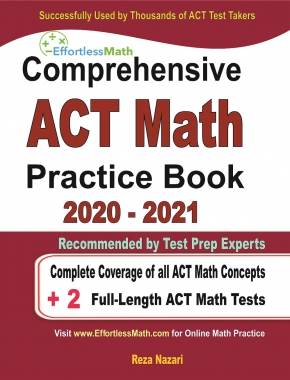
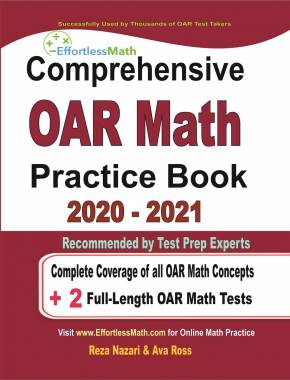
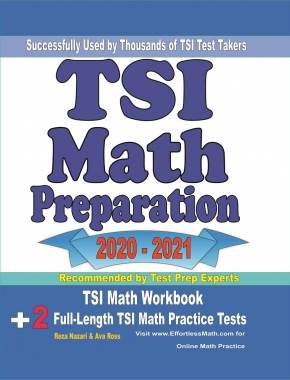
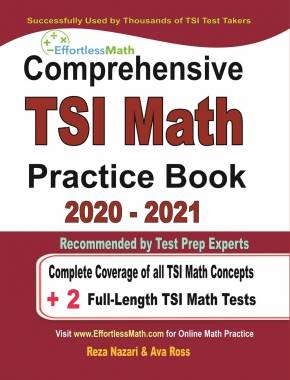
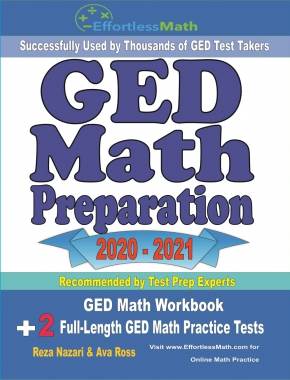
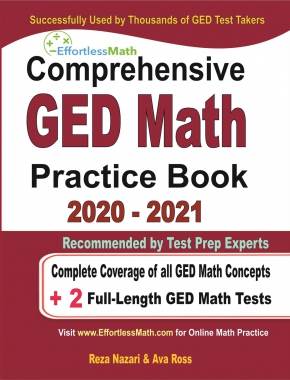
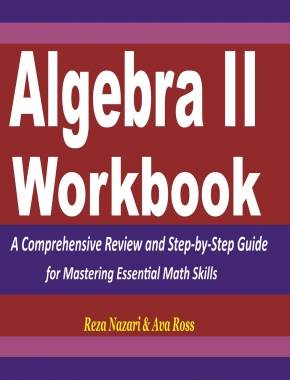

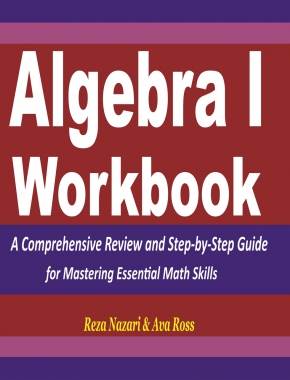
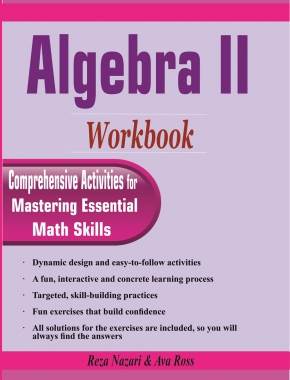
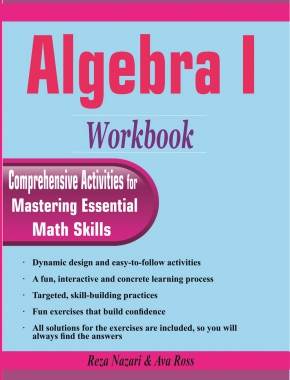
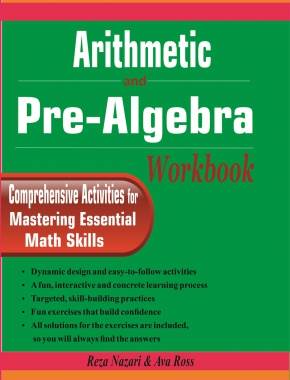
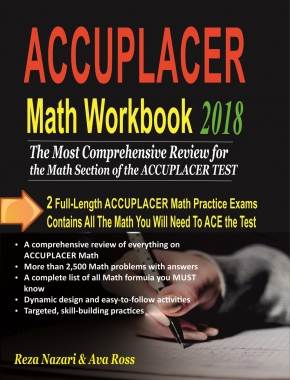
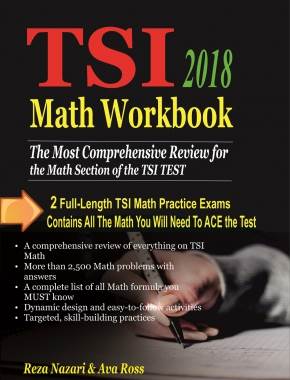




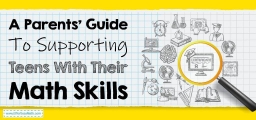

What people say about "How to Develop Foundational Math Skills for Career Success - Effortless Math: We Help Students Learn to LOVE Mathematics"?
No one replied yet.